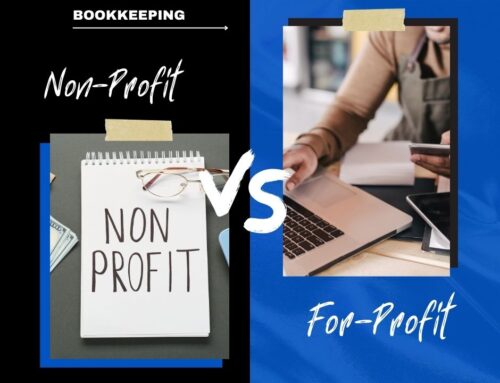Whether your company is a start-up or a long-standing business, if you want to be successful, your books must be kept in order. Most small business owners aren’t familiar with best bookkeeping practices, so outsourced bookkeeping services may be an ideal solution to ensure proper management of your financials. Whether you decide to do it yourself or outsource, it’s essential to understand some of the best practices for bookkeeping to keep an eye on your bottom line.
Keep Funds Separate
Keep your personal and business finances separate to avoid cash flow issues and auditing complications. This means you and your employees should never buy anything personal using business funds or purchase something for the business with personal funds. Commingling finances is especially tempting when you have a small business in which you handle all the purchases and payments yourself. Even when you’re the only person handling the funds, you still want them kept separate. Make sure you open separate bank accounts and credit cards for your business to always have a clear view of your company’s financial health and to make tax time so much easier.
Establish Internal Bookkeeping Controls
Establish and maintain adequate internal bookkeeping controls, which should include segregation of duties to reduce the risk of fraud and ensure no one is in a position to pose a significant financial risk to your business. For this best bookkeeping practice to work, all employees must adhere to your company’s bookkeeping policies and procedures. Segregation of duties should include appropriate checks and balances to ensure accountability, such as dual control for all tasks that involve making or receiving payments of any type. For example, all outgoing checks should be signed by two employees, neither of which should be the one who reconciles the checkbook. All invoices should go through accounting prior to being sent out for approval. If you don’t have an accounting department, outsource your accounting.
Use Accounting Software to Track Expenses
It’s essential to keep a thorough record of all your business expenses, which requires Second recording all saved receipts at least weekly, if not daily. Without a core accounting software system equipped with cloud-based technologies, daily bookkeeping will put a major strain on your time, which only gets worse as your business grows. QuickBooks is a solid choice for small businesses, and it’s scalable to meet your future accounting needs. Like other accounting tasks, you can also outsource QuickBooks bookkeeping to eliminate some of the burden on your time.
Diligently Monitor Accounts Payable and Accounts Receivable
Accounts payable and accounts receivable are critical aspects of your business’ financial health, so monitoring AP/AR tops the list of best bookkeeping practices. Maintaining your AP/AR makes the most of your cash on hand. Accounts payable monitoring ensures you pay the right amounts to your creditors on time to avoid late fees or even take advantage of early payment discounts. Monitoring accounts receivable decreases turnover time with quicker payments through more efficient invoice management. This means getting invoices out promptly and following up on any past due accounts.
Track Employee Time
Tracking payroll helps you better understand your profitability by seeing how much you invest in your staff each month. Instead of inputting time sheet information into the system by hand, automate these processes to increase accuracy and efficiency. Payroll automation feeds your information into your chosen bookkeeping system and posts it by pulling allocated information from what’s been recorded on each employee’s time sheet. Use your accounting software to track payroll expenses during any given period to see how it affects your bottom line.
Stay on Top of Bank Statements
Look at your banking transactions daily, reconcile your bank statements regularly and promptly resolve any issues you find. Reconciling your bank statement reflects your actual funds on hand, which should match your books. If the two don’t match, you know you have a problem that needs to be investigated immediately. Staying on top of your bank statements also helps you detect fraud, catch bank errors, track cash flow and keep tabs on accounts receivable.
Evaluate Your Financial Data Monthly
Examining your financial data helps you evaluate your company’s financial position and overall profitability. With monthly evaluations, you can see how your business is doing from one month to the next to determine whether things are working the way you expected or if you need to reevaluate your business strategy. Key financial reports you should evaluate each month include your company’s balance sheet, income statement, cash flow statement and aging accounts receivable report.
Communicate Regularly With Tax Accountant
Communicating regularly with your tax accountant is important to confirm you’re doing everything you should to maintain your business’ records and track expenses. This helps ensure you’re ready when it comes time to file your business taxes and helps you make strategic decisions throughout the year to reduce your tax burden. After you’ve filed your taxes, be sure you’re ready for an audit by keeping all your old records for at least seven years. This includes all business-related records, not just tax returns.
Get Reliable Bookkeeping in Boston
Get professional assistance to set up your business’ bookkeeping best practices by partnering with Navitance for outsourced part-time bookkeeping services. Whether your business needs help handling aspects of your day-to-day bookkeeping or you just need an extra hand at the end of the month inputting transactions, our team of financial professionals can help you get and keep your financial books in order.
We have decades of experience, and our comprehensive bookkeeping services in Boston can help you establish sound bookkeeping practices with the best technology tools available. Our services are scalable to meet your company’s growing needs with a full suite of financial services for small businesses, nonprofits and companies of all sizes and industries. Contact us at 978-809-3282 to learn more about all the bookkeeping and financial services we provide, or request a consultation online.





